Search
Search Results
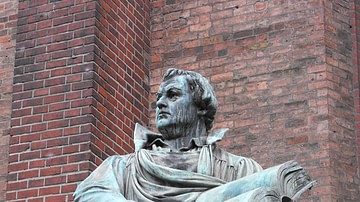
Image
Martin Luther Monument
A monument of Martin Luther (l. 1483-1546), German theologian and prominent figure of the Protestant Reformation.
Wittenberg, Germany.
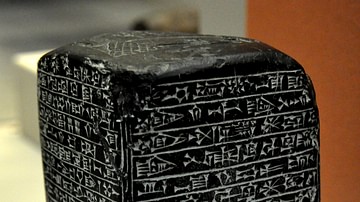
Image
Stone Monument of Esarhaddon
Irregular rectangular-sided monument recording Esarhaddon's restoration of Babylon; possibly black basalt; carved symbols on the upper surface. Height 8.5 inches. The stone is not local to Mesopotamia. The irregular shape of the object...
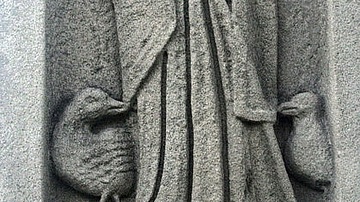
Image
St. Hilda monument, Whitby
Detail from a monument to St. Hilda (614 - 680 CE) in Whitby, England. The coiled ammonite shells at St. Hilda's feet are a reference to a legend in which she turned snakes which plagued Whitby to stone. This legend helped to explain the...
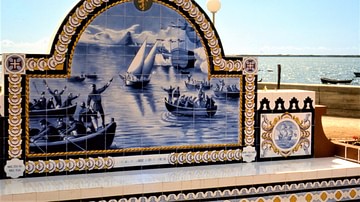
Image
Public Monument in Portugal
This is a public monument in Portugal that is typical of azulejos (glazed ceramic tiles) that show Portugal's proud seafaring history. Date of the panel is not known. Date the photo taken is not known.
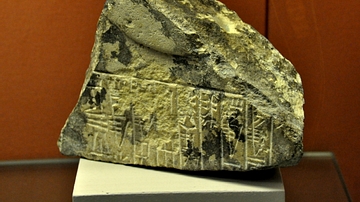
Image
Utu-Hegal's Stone Monument
The cuneiform inscriptions on this fragment of a stone monument mention the name of Utu-Hegal, King of Uruk. 2125 BCE, from Ur, Mesopotamia, Iraq.
The British Museum, London.
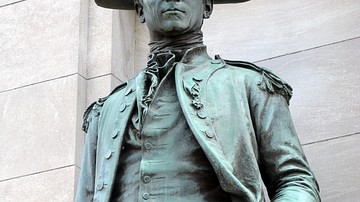
Image
John Paul Jones Monument
John Paul Jones (1747-1792), a Scottish-born sailor who served in the Continental Navy during the American Revolutionary War (1775-1783), monument in Washington, D.C.
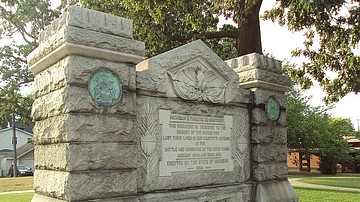
Image
River Raisin Massacre Monument
A monument commemorating the Kentuckians killed in the massacre following the Battle of the River Raisin (23 January 1813) at the battlefield in present-day Monroe, Michigan. Photo by Notorious4life, July 2010.

Image
Choragic Monument of Lysicrates
Choragic Monument of Lysicrates
Dedication: 335/334 BCE
Location: Athens, Greece
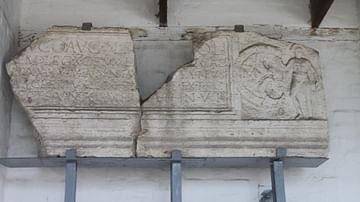
Image
Funerary Monument of M. Annius Lucus
Funerary Monument of M. Annius Lucus, a centurion of several legions: Legio XV Apollinaris, Legio VII Gemina, Legio X Gemina, and Legio III Gallica, 170-200 CE.
Aquincum Museum, Budapest.
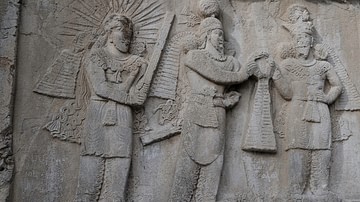
Image
Victory Monument of Ardashir I
A 3rd Century CE bas-relief in Taq-e Bostan, Iran commemorating the overthrow of the Parthian Empire by Ardashir I (180-240 CE, r. 224-240 CE), the founder of the Sasanian Empire. Ardashir I is depicted with his son Shapur I, (215-270 CE...